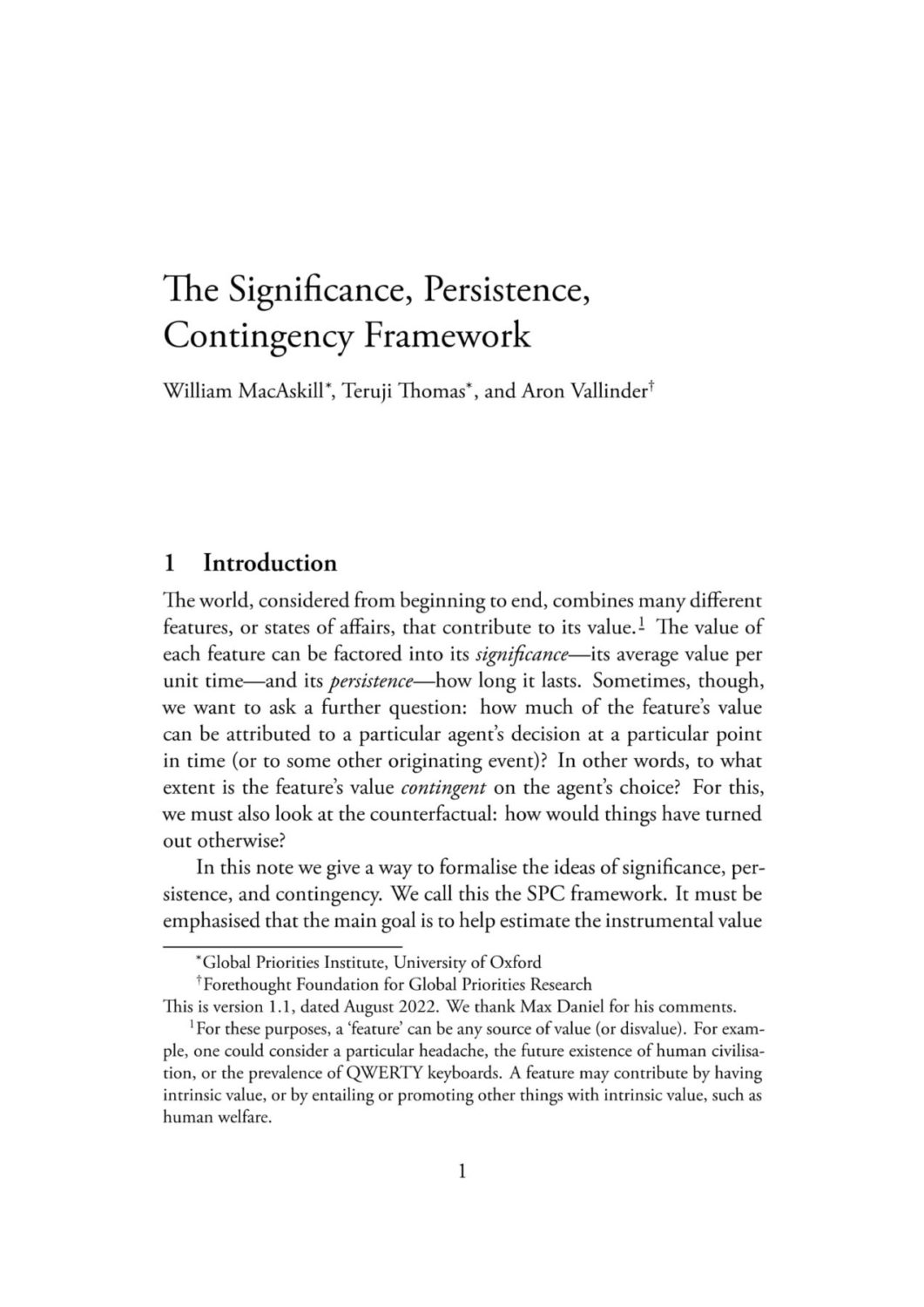The Significance, Persistence, Contingency Framework
William MacAskill, Teruji Thomas (Global Priorities Institute, University of Oxford) and Aron Vallinder (Forethought Foundation for Global Priorities Institute)
GPI Technical Report No. T1-2022
The world, considered from beginning to end, combines many different features, or states of affairs, that contribute to its value. The value of each feature can be factored into its significance—its average value per unit time—and its persistence—how long it lasts. Sometimes, though, we want to ask a further question: how much of the feature’s value can be attributed to a particular agent’s decision at a particular point in time (or to some other originating event)? In other words, to what extent is the feature’s value contingent on the agent’s choice? For this, we must also look at the counterfactual: how would things have turned out otherwise?
Other working papers
Economic inequality and the long-term future – Andreas T. Schmidt (University of Groningen) and Daan Juijn (CE Delft)
Why, if at all, should we object to economic inequality? Some central arguments – the argument from decreasing marginal utility for example – invoke instrumental reasons and object to inequality because of its effects…
‘The only ethical argument for positive 𝛿’? – Andreas Mogensen (Global Priorities Institute, Oxford University)
I consider whether a positive rate of pure intergenerational time preference is justifiable in terms of agent-relative moral reasons relating to partiality between generations, an idea I call discounting for kinship. I respond to Parfit’s objections to discounting for kinship, but then highlight a number of apparent limitations of this…
Moral demands and the far future – Andreas Mogensen (Global Priorities Institute, Oxford University)
I argue that moral philosophers have either misunderstood the problem of moral demandingness or at least failed to recognize important dimensions of the problem that undermine many standard assumptions. It has been assumed that utilitarianism concretely directs us to maximize welfare within a generation by transferring resources to people currently living in extreme poverty. In fact, utilitarianism seems to imply that any obligation to help people who are currently badly off is trumped by obligations to undertake actions targeted at improving the value…

